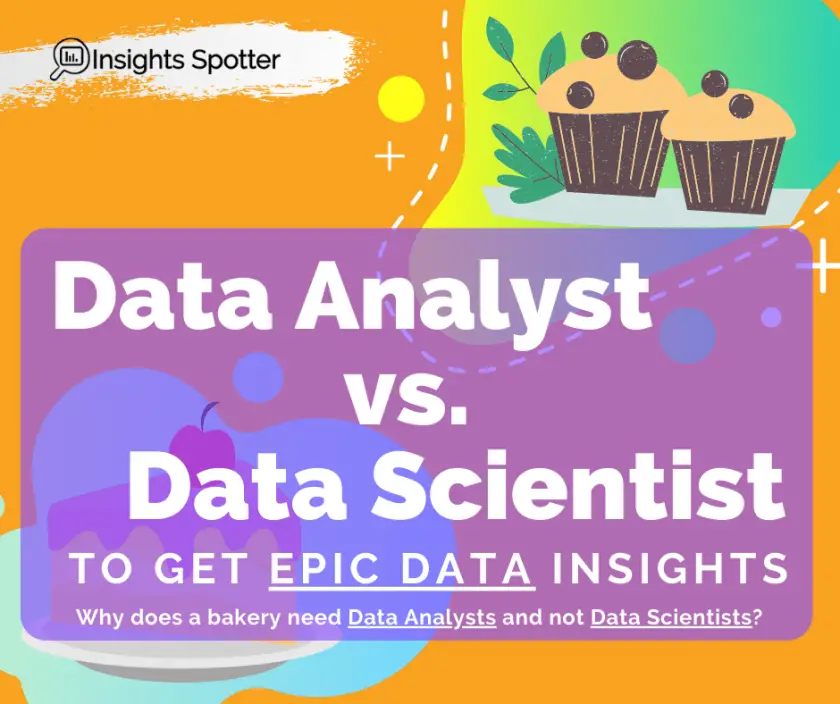Data Analyst vs Data Scientist: What Does Business Need?
Why The Right Data Analyst Is Awesome
Usually, if you have data, you need somebody to do something to give you insights. So, the question is if you need a data scientist: an expert who deals with massive quantities of data and creates complex predictive analytics of consumer behaviour. The short answer is definitely No! It would be best to have an experienced data analyst who can pick your standard business data an convert it into clear insights. Let’s have a look into the differences between data analyst vs data scientist below.
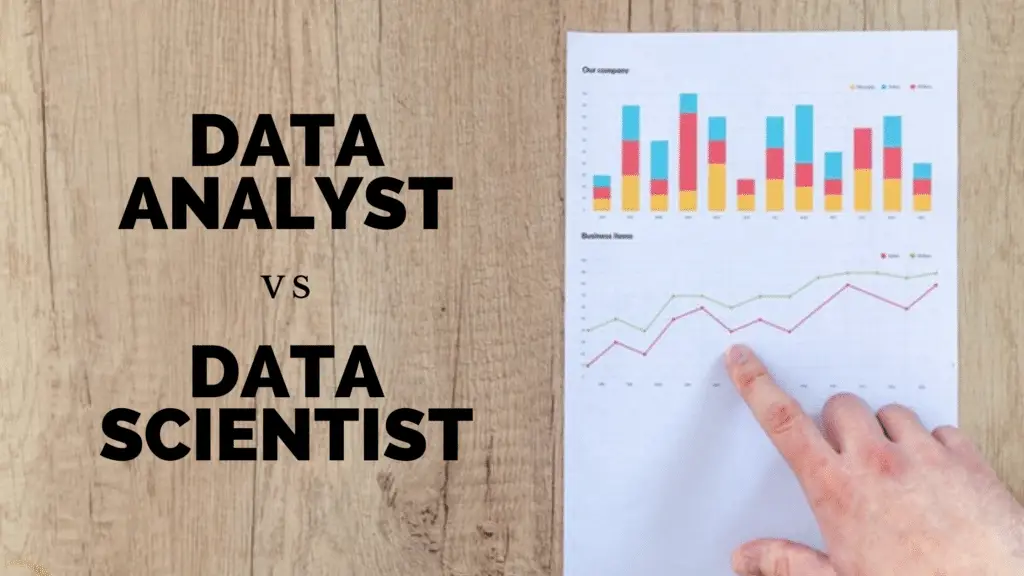
Data Analyst vs Data Scientist
| Data Analyst | Data Scientist |
|---|---|
| Maths & very little statistics | Maths & a lot of statistics |
| Multiple different smaller data sets | Fewer different data sets, but very large in size |
| Mapping data in a data model | Mapping data in a data model |
| Fast analysis outcome | Slow analysis outcome |
| Creating visuals & dashboards | Creating some visuals |
| Finding unknown unknowns | Exploring known unknowns |
| Go wider with unknown problems | Go deeper into known problems |
| Goals: source data, clean, transform and present to business with clear simple insights | Goals: build AI engines, machine learning, neuro-linguistic programming (NLP) algorithms, predict the future using data inputs |
| Programming languages like Python, R , SQL, HTML, JavaScript | Programming languages like Python, R, SAS, Matlab, SQL, Pig, Hive, and Scala |
| Spreadsheet Tools (Excel) | Distributed Computing frameworks like Hadoop |
| Data Visualization Tools like Tableau, PowerBI, PowerPoint | Data Visualization Tools like Tableau, Python |
Who Do You Need For Quick Data Insights In The Business?
Everyone is talking about “big data“, “data mining“,, “data analysis“, “data lakes“, and “data science“. They make business think that you must do it now to get great data insights! I beg to differ. Creating value is the most important thing for business, and sometimes having the biggest data will not bring it. Well, except if you are Apple, Google, Microsoft, and you know the rest.
To start with, people use data analyst and data scientist terms interchangeably. Well, there is quite a big difference between the two. Sure, both work with data, but what they do with it and the outcome could be very different. I will tell you a secret data analyst will be the one to pick up all the low hanging fruits in your business data and give the quickest, most valuable insights today. There is no need to venture into complex data in 95% of cases.
Who Is Data Analyst?
Data analysts analyse multiple data sets, map them together to identify trends, validate if any given project can use them. He/she will create graphs and even dashboards, allowing businesses to make data-driven decisions. Often the problem is already defined, and data analyst are looking for a solution.
There are multiple roles that a data analyst can assume. Depending on the industry, the analyst may work on external market research or internal client behaviour, to name a few.
The ultimate goal is to source data, clean, transform it and present it back to business in a beautiful format, including a report, dashboard and presentations. These will suggest impactful solutions to the problems or introduce brand new opportunities.
Who Is Data Scientist?
Data Scientists utilise data modelling, programming, statistics, and predictive models to build AI engines, machine learning, neuro-linguistic programming (NLP) algorithms, or predict the future. Sounds fancy!?!
A data scientist often would define the problem working with a big set of unstructured and/or structured data. Frequently, this would involve programming, prototypes and predictive analytics. Only then, he/she will try to create solutions, which likely to be quite complicated and take time.
Does Data Science Have Its Uses?
Do not get me wrong; there are places where this is super important. My friend is managing a team to analyse data and understand how businesses are moving recyclable waste. They try to predict or understand the optimal use of that waste—an excellent reason to be fancy with data.
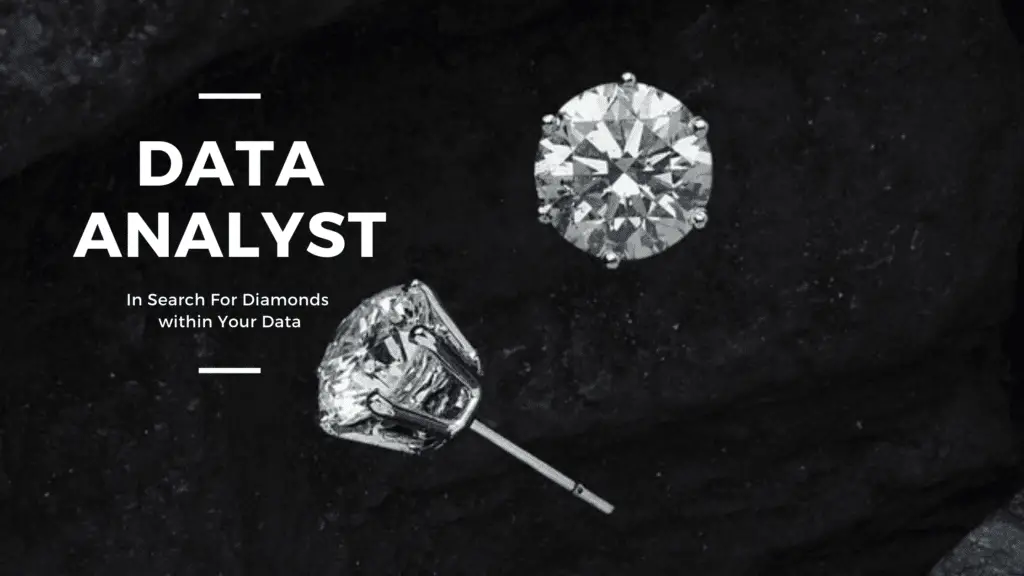
Why You Need a Data Analyst In Most Cases?
But it is time to ask yourself, do you have enough “Big unstructured data” to require a dedicated data scientist or complex predictive models? Otherwise, do you have standard structured business data, like transactions, customer acquisitions data, in well-defined databases?
Thus, you might need a different type of specialist like a data analyst to convert data into easy-to-digest formats, provide remarkable insights, display them on a timeline. So, you are clear about what is happening in your world, and then you can make well-informed decisions.
My guess, for most of the business latter, is the case. From all the talk about “big data”, a minority of companies can genuinely directly benefit from it. Businesses should spend less time paying attention to all those buzzwords and concentrating on finding diamonds in the data they already have. Data analyst could come in very handy here with his/her expertise in the right tools and knowledge of common issues with data and how to solve them.
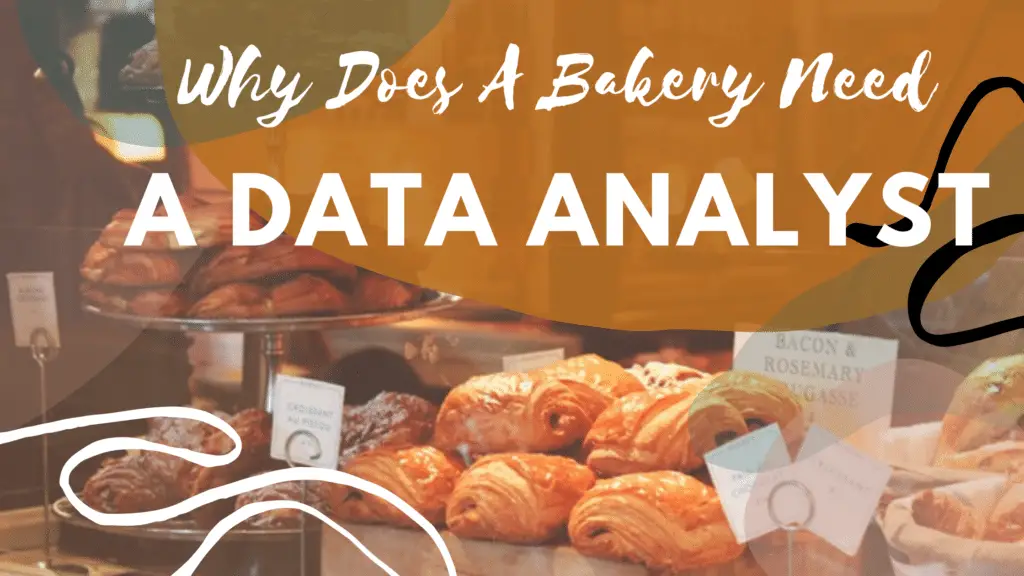
Why Does a Simple Business Need A Data Analyst?
Get Epic Data Insights
Let’s play out a scenario. You are running a bakery business with five people. You would like to enhance your business profitability. You will probably need to understand where the money is coming from, the most price-sensitive products, and what sources contribute to your cash flow. You have a database with all your transactions, events and customers. Also, have some idea where to look externally for some more market data.
In the first case, you hire a data scientist. They would start analysing your data, building analytical models to predict the future. All very good, who wouldn’t want to predict the future!?! Also, there is a lot of action happening; data is being crunched, complicated stuff is coming out. With two TINY issues:
- To build a half-decent future model, you need extensive data sets to test your models. A bunch of transactions from the last five years will not cut it. Google, IBM and Microsoft are all trying to do it. They are leading globally, but even they do not have models that predict the future.
- With so much work happening, it can take years before you get the insights you need for decision making now? Plus, you want to sell cupcakes for the right price and right audience and not go all scientific.
In a second example, you hire a data analyst. First of all, their skill set in various combinations is more widely available. They would use something along the lines of:
- SQL (access data in databases),
- Excel (for simple filtering, mapping),
- Python or R (to clean, automate and transform data),
- and data visualisation tool like Power BI to create interactive dashboards.
The benefit of using these tools and data analyst methods is that you use the data you currently have. Sure, you might need to go to the market for some research, but we are talking weeks, not years. Plus, you will get insights today.
You will understand everything clearly as a data analyst will present insights swiftly and concisely. In some cases, you can even have everything you need on one piece of paper or tab. You will be able to make decisions here and now.
You do not need machines to tell you that your favourite customer Bob stopped buying blueberry muffins; or that every 1 in 2 (fictional number) bakeries are closing due to health-conscious customers. And if your data analyst is suited, he/she will know how to make an interactive report to show you all of that. On the spot, you would be able to ask relevant questions and get insights.
So, I would suggest spending less time reading headlines about “predictive analytics”, “big data”, “data science”, and spend more time utilising your data. There is gold there, I promise you! You need a data analyst to dig it for you!
Do you have already ideas about problems you could solve with your data? Or you have questions. Let me know!
Subscribe to our newsletter!
Latest Blog Posts
- Sustainable Project Management: Trends, Tools, & Strategies
- Unlocking Strategic Value: How NIST CSF 2.0 Shapes Project Choices for Better Outcomes
- Cybersecurity Project Management: Protecting Your Digital Frontier
- What are the Different Types of Planning in Project Management?
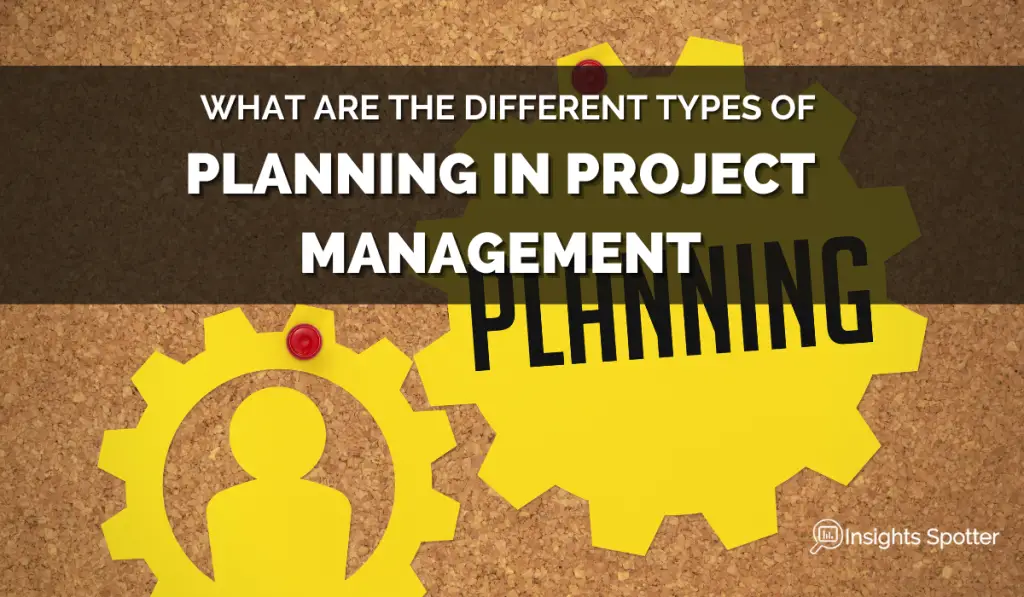
- Transforming Project Management with AI Software: Tools, Challenges, and Best Practices
- Unlocking the Benefits of AI-Powered Project Management

